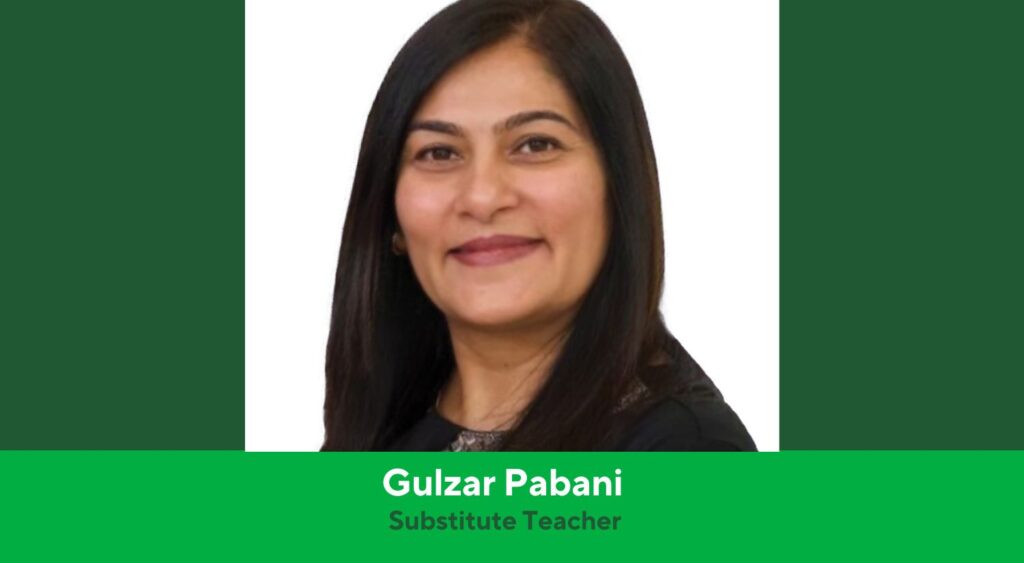Want to be a substitute teacher? What it takes to get education jobs.

Do you have talents suited for education jobs? Do you wake up every day with the intention of positively impacting the world? Though the roles available in education are plentiful, the qualities needed to work effectively with students are similar.
- Confidence
- Communication
- Conflict resolution
- Creativity
- Enthusiasm for learning
- Flexibility
- Leadership
- Professionalism
Types of education jobs.
From early childhood to K-12, job opportunities range across disciplines. For example, instructional roles include:
- teachers
- substitute teachers
- paraeducators
- special education aides
- tutors
And outside of teaching, non-instructional jobs include:
- custodians
- food services
- Physical and behavioral therapists
- school nurses
- office and clerical workers
- support staff
Every role is essential, each calling for different skills, experience, or credentials.
With so much opportunity, there are hidden talents you could bring to education that you may not realize. They may be natural qualities and skills, or experiences you’ve nurtured while working in other industries. It’s possible you may already have the perfect mindset to thrive in education jobs.
Occupations and backgrounds that fit well in education.
Looking to change jobs? Education jobs may demand some of the same skills that you currently use—like communication, organization, and conflict resolution. These skills are often developed in business, health care, or military service. They translate well into many teaching and non-teaching roles.
For example, certified nursing assistants (CNAs) have proven to work well in the classroom as special education paraprofessionals. Their role in health care requires them to be reliable, kind, empathetic, punctual, and respectful of confidentiality and privacy issues—all nurturing qualities key to working with special education students.
CNAs work long hours and schedules that include night shifts. This shows their commitment and flexibility, which is perfect for education. However, they might find that working a more consistent schedule, Monday through Friday, in education is more enjoyable.
People with experience in public service, from firefighters to police and veterans, can also find a welcome home in education. Many of these folks are already dedicated to their communities, trained to be confident decision-makers, and good at reacting with less direction. They can use their training at schools and universities, whether it’s for leadership, problem-solving, or reflecting calm in the face of uncertainty.
Parents backgrounds in raising children builds many of the same skills described above.
Other qualities of educators.
Some professions nurture the skills or characteristics for work in education, while others come to these skills more naturally:
Creativity
Our early childhood centers, schools, and colleges all depend on creative people. This extends beyond the classroom to roles in food service, administration, safety, and office work. Students simply learn better at any age when they’re doing something that’s more fun or interesting. No matter what role you play, you can bring creativity to your approach and discover new ways for students to enjoy learning.
Enthusiasm
Enthusiasm is infectious. When you love the subject you teach or you love the job you’re doing, you’ll be igniting a spark in students that can burn for a lifetime. Bring your natural passions and interests to education, and you’ll be turning something that was boring into something students can get excited about. Even a new, fun dish in the cafeteria can inspire a better afternoon and lead to a better week.
Leadership
We’ve all met a natural-born leader. Substitute teachers, paraeducators, tutors, and therapists need leadership skills to manage an effective classroom and/or inspire confidence in their students. If you’ve got it, you’ll use it daily in education. If not, no worries! You can also learn to lead.
Many people are hesitant to try a role in education for lack of formal preparation. So, employers like Kelly Education provide pre-hire training, orientation, and ongoing professional development customized for all roles.
The best mindsets for education.
Open to change. Confidence. Professionalism. Patience.
Like any other work, your success depends on the skills you bring to the job just as much as your attitude and outlook.
First and foremost, although you’re encouraged to be creative and have fun, it’s imperative to take the job seriously. Whatever work you do in an educational setting, you have an essential role to play. Whether you enjoy the responsibility of full-time teaching or the flexibility of a substitute position, every role has a huge impact on students.
Be open to change.
Challenges arise daily in education that require you to adapt, often on a moment’s notice. Your routine will vary regularly between holidays, trips, sports days, celebrations, and the occasional unexpected twist. If you embrace change and don’t want to sit at a desk all day, your adaptability will serve you well.
Confidence is key.
Feel self-assured when directing a class or working with an individual student. You’ll need some basic knowledge of computers and technology to feel at ease with scheduling the assignments you want to take or to use the technology-based equipment at your school.
Professionalism is paramount.
Any role in education reflects your character—students are always watching you as a role model. They should respect you, and you need to respect them as well. You must also present yourself consistently, whether on the job or on social media. Understand that nothing is private, and everything shapes your reputation and the respect you gain on the job.
Patience is a virtue in life and priceless to education.
People learn in various ways, at different speeds, and perform better in certain subjects. Even the best classes and students encounter stressful situations and conflicts where you’ll need to maintain your composure and help formulate a favorable resolution.
Grow as a substitute teacher with Kelly Education.
We have an entire library of helpful articles for current prospective substitute teachers. They include:
If you or someone you know is interested in education jobs, fill out our brief interest form. One of our recruiters will contact you to answer your questions about becoming a substitute teacher or support staff with one of our school district partners.
View Related: Article Considering options
You might like
Find your next job
Discover thousands of temporary, full-time, and remote jobs for beginning and experienced job seekers.






